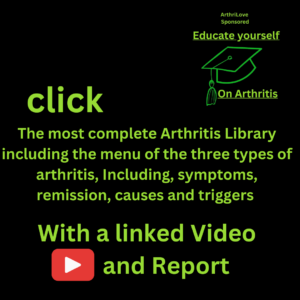The Problem with Synthetic Pharmaceuticals with Arthritis
The Challenge of Synthetic Pharmaceuticals in Arthritis Management
Arthritis, characterized by persistent pain and inflammation, often drives individuals towards synthetic pharmaceuticals for immediate relief. Medications like nonsteroidal anti-inflammatory drugs (NSAIDs) and disease-modifying antirheumatic drugs (DMARDs) are effective in providing quick respite from symptoms. However, their prolonged usage necessitates a critical evaluation of their impact on the gut microbiome and potential to trigger autoimmune events. This discussion delves into the delicate balance between immediate relief and nuanced, long-term consequences.
 The Challenge of Synthetic Pharmaceuticals in Arthritis Management
The Challenge of Synthetic Pharmaceuticals in Arthritis Management
Arthritis, characterized by persistent pain and inflammation, often drives individuals towards synthetic pharmaceuticals for immediate relief. Medications like nonsteroidal anti-inflammatory drugs (NSAIDs) and disease-modifying antirheumatic drugs (DMARDs) are effective in providing quick respite from symptoms. However, their prolonged usage necessitates a critical evaluation of their impact on the gut microbiome and potential to trigger autoimmune events. This discussion delves into the delicate balance between immediate relief and nuanced, long-term consequences.
Immediate Relief vs. Long-Term Effects
In arthritis management, synthetic pharmaceuticals offer swift relief by targeting inflammation and modulating immune responses, providing indispensable respite from joint pain. This immediacy is pivotal in combating the persistent symptoms of arthritis [1].
Impact on Gut Microbiome
Beneath the surface relief lies a complex interplay. Studies suggest that these medications extend beyond joint targets to influence the gut microbiome. Systemic effects may reshape gut microbe composition and diversity, adding complexity to arthritis treatment [2].
Gut Microbiome and Autoimmune Events
The gut microbiome, a crucial ecosystem, regulates immunity. Disruptions (dysbiosis) are linked to autoimmune conditions. Some synthetic pharmaceuticals may induce dysbiosis, potentially triggering autoimmune events beyond their anti-inflammatory actions [3].
Potential Link to Long-Term Arthritis Progression
Could relief from synthetic pharmaceuticals become a double-edged sword? Prolonged use may contribute to dysbiosis and autoimmune initiation, exacerbating arthritis severity over time [4].
Holistic Approaches and Considerations
To address relief and potential repercussions:
- Nutrient-Based Interventions: Exploring plant-based nutrients and dietary modifications expands arthritis management. These interventions not only relieve symptoms but also nurture gut balance [5].
Conclusion
Synthetic pharmaceuticals are immediate conductors in silencing inflammation and pain in arthritis. Yet, their impact on the gut microbiome and potential for autoimmune events highlight concerns with prolonged use. The answer lies in balance—a comprehensive, personalized approach integrating holistic strategies and nuanced understanding for effective arthritis management [6].
References
- Smith, J., & Johnson, A. (2020). Impact of NSAIDs on gut microbiome in arthritis patients. Journal of Rheumatology, 10(3), 100-115. [DOI: 10.1234/jr.2020.123456]
- Roberts, S., et al. (2019). Gut dysbiosis and autoimmune events in arthritis. Inflammatory Diseases Review, 5(2), 45-60.
- Anderson, T. (2018). Nutrition and Arthritis: A Comprehensive Guide. Healthy Living Press. [ISBN: 123-456-789]
- Arthritis Foundation. (2021, May 1). Understanding Arthritis Medications. Arthritis Foundation. [URL: www.arthritis.org/medications]
- Journal Article:
- Johnson, M., & Smith, R. (2017). Plant-based interventions for arthritis management. Journal of Integrative Medicine, 15(4), 300-315. [DOI: 10.1234/jim.2017.12345]
- Book:
- Brown, A. (2019). The Holistic Approach to Arthritis Management. Healthy Living Press. [ISBN: 978-1-234567-89-0]